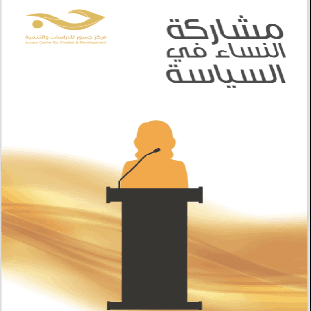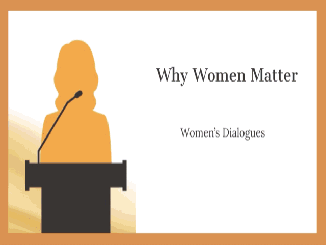Asma Khalifa and Inas Miloud, founders of Tamazight Women Movement (TWM), a women’s empowerment organization based in Libya, spoke to Al-Mufaqira Journal to discuss the founding of TWM, gender-based violence (GBV), intersectionality, social divisions, the challenges facing women and their hopes of a better future.
Al-Mufaqira: Why did you decide to establish an organisation for Amazigh women?
Asma and Inas: We both came together as Amazigh women activists as we knew there was no women’s rights organisations that focus on Amazigh women’s experiences and challenges in Libya. Additionally, research on Libyan Amazigh women is virtually non-existent. By founding TWM, we have been trying to shed light on Amazigh women issues not only in the Nafousa Mountains and Zuwarah but also in southern Libya where there are Tuareg and Tebu communities.
In the TWM, we use many feminist theories but the theory of intersectionality made us specialise our work on indigenous women in Libya. However, we work with everyone and want to support men and women interested in advancing the Libyan women’s movement. Still to this day, the stories of indigenous women remain missing from the national discourse and we are working towards changing that.
Al-Mufaqira: What specific challenges face Amazigh Libyan women in comparison to Arab Libyan women?
Asma and Inas: There are various challenges across sectors, women’s issues are different in Libya from one city to another. For instance, women in the Nafousa Mountains live in a conservative rural area with little connections to Tripoli to allow them to participate in political and social life. Their voices and problems are therefore unheard in the public and social spheres. Some Tuareg and Tebu women in southern Libya are not even recognised as “citizens”, which means that they are structurally excluded from access to education, health and basic necessities.
However, it is important to remember that all social groups in Libya have at one point been marginalised by the system. But we stress that indigenous groups face double discrimination on a systemic level and a cultural level. The Amazigh identity is under constant threat from political ideologies like pan-Arabism. Our mothers and aunts grew up in a society where they had no right to speak their mother tongue in public spaces. Many Amazigh Libyans were detained and prosecuted simply for expressing their identity as well.
Al-Mufaqira: What work have you done to combat gender-based violence (GBV)?
Inas: The TWM underlines the existence of GBV in Libya as it is a topic that many do not wish to discuss. At TWM, we deal with GBV on an intersectional level to show how Amazigh Libyan women experience GBV differently to Libyan women living in different geographical or socioeconomic zones. To a lot of people’s dismay, some Amazigh Libyans do not speak Arabic which means that if a woman experiences GBV, it is doubly difficult for her to get the help needed due to a cultural stigma, but also a language barrier. TWM wants to engage with these issues, by discussing them in the open and showing how recognition of the Amazigh language in public spaces is needed.
Al-Mufaqira: On the topic of GBV, what are your views about the recent video circulating online of a Libyan girl being raped by a Libyan man?
Asma and Inas: Rape is a war crime and it is terrible that the violation of a woman’s body and humanity is being used for dirty political gains. However, sometimes our Libyan society needs a shocking incident to awaken it to the lived reality of GBV. Everyone pretends that we do not have a morality crisis on a personal or societal level, but we certainly do.
Women’s bodies are the first territory to be violated in wars because it represents so much to women and the community. Rape happens frequently in Libya and more so inside women’s homes than outside of them, but everyone keeps silent about it. Additionally, women’s bodies are seen to belong to everyone else except women and therefore committing rape punishes women by taking away their space and agency. In the MENA region, rape is considered equivalent to murder because it breaks society into pieces and has profound ramifications even during the post-war period.
Al-Mufaqira: What do you think needs to be done to stop GBV? And do you think it is linked to other forms of violence, abuse and intolerance in Libyan society?
Asma and Inas: Of course, GBV is an epidemic disease that is linked to many other forms of violence. In Libya, we personally think we need to have the “taboo” discussions and break down the many walls that prevent us from treating the root causes of GBV. We are still reluctant to ask why men harass, molest, rape women since these “taboo topics” are linked to issues like sexuality, repression of men and women’s bodies until marriage, gender segregation and the structurally-ingrained gendered power relations in Libya.
Now, we lack the safe spaces to have these difficult discussions, but until we can have them our work is mainly about making people aware that GBV is a bad thing without addressing its root causes.
Al-Mufaqira: Why are there such profound divides among Libyans? Where does this tribal divisive cultural thinking and rejection of the “other” come from? And how can it be overcome?
Asma and Inas: This is a historic and geographical issue. Libya is a big country with a small population which means that every group lived its own version of reality, cocooned in a tribe or region. We have never been a nation state because the nation was divided by the Romans and then each colonial force (including the Ottomans) treated each region or tribe differently from another. They contributed significantly to the creation of hierarchical structures amongst the Libyan populace.
Al-Mufaqira: Interesting. But why have these tribal structures been perpetuated?
Asma and Inas: The reason why these divisions continue to exist is because each side thinks it has witnessed a unique set of injustices. Multiple incidents occurred and injustices varied across the country but everyone faced them. We must admit these truths or we risk being trapped in a vicious circle of violence, resentment and condemnation. We must knowledge our past and our mistakes to heal together.
Al-Mufaqira: Thank you for this interesting point on reconciliation. But how can we create a more tolerant society? Do you think that it comes, for instance, by encouraging more Amazigh and Arab marriages or friendships?
Asma and Inas: This is a reflective question being posed across the world today. We think that fear lies at the centre of all of this. There are already marriages and friendships among Amazigh and Arab Libyans, but what the Amazigh fear is that they will lose their identity, and what many of the Arabs fear is straying away from the sole accepted identity which is the Arab-Muslim one.
Both Amazigh and Arabs are afraid of each other due to a long history of discrimination and Arabization. Many Arabs fear greater ethnic diversity due to their own nationalist rhetoric from pan-Arabism. It has not united the Arabs and this creates hostility towards the thought of Amazigh and Kurds being given more rights.
Al-Mufaqira: What are your hopes for the future? And how do you keep yourself motivated doing the work you do?
Asma and Inas: Like many activists, we have a weird relationship with hope, sometimes we think we must create it, other times we are in a dark space.
But what we hope for and fast is that more Libyans realise that this war will solve nothing and will be motivated to work actively towards peace.
Asma: For the past 6 years, I have had many burn outs during the year. Now, I have less of them and more desire to work because I take breaks to breath and digest the changes and shifts around me. However, I cannot sit still when I see the suffering in my country which makes me take unwise decisions. I am still training myself to be pro-active and do my work constructively as well as sometimes just push myself out of bed in the morning.
Al-Mufaqira Journal would like to thank Ms. Asma Khalifa and Ms. Inas Miloud for conducting this interview with us, and we hope that the message of TWM reaches our audiences. To learn more about TWM, visit the organisations Facebook page https://www.facebook.com/tamazightwomanmovement/.


